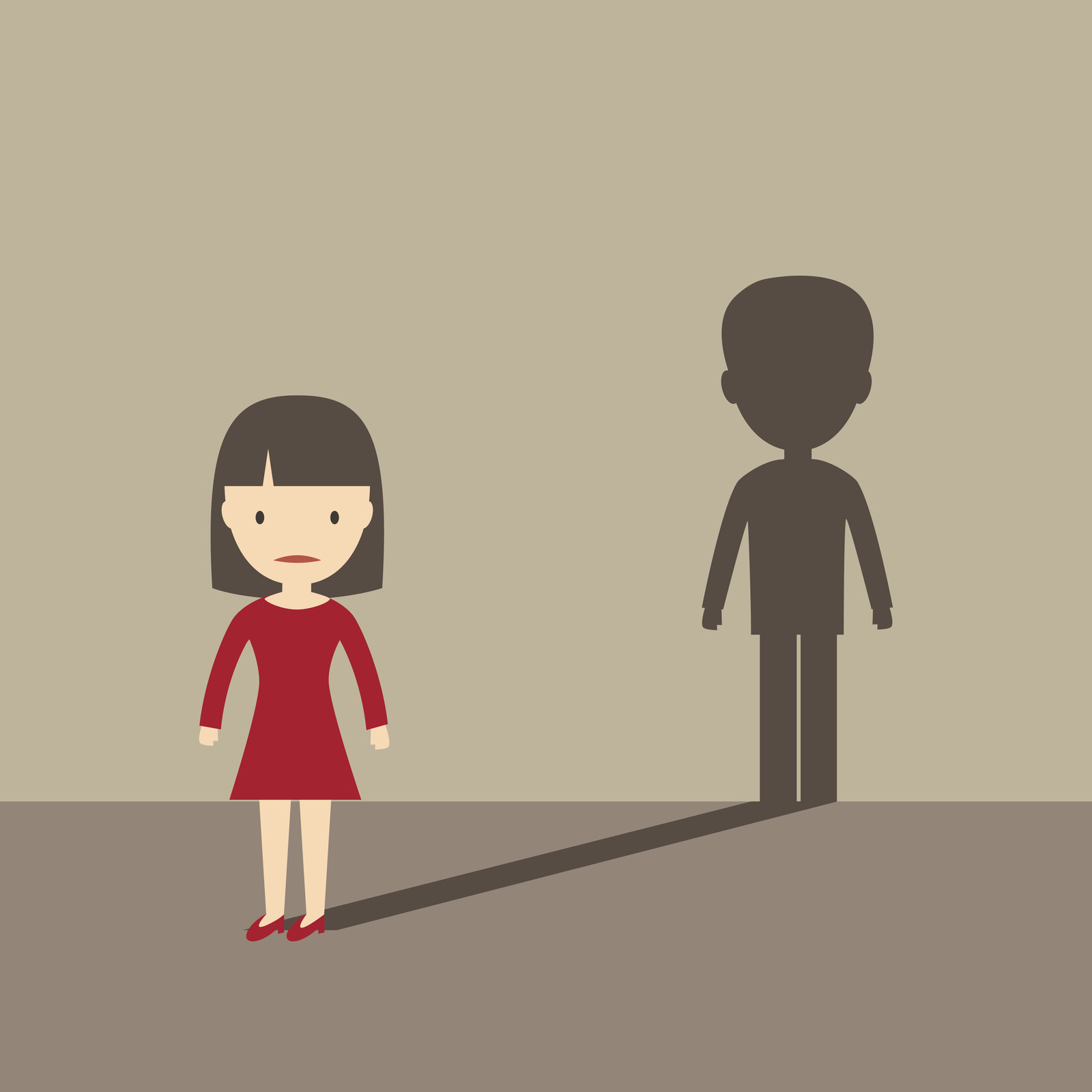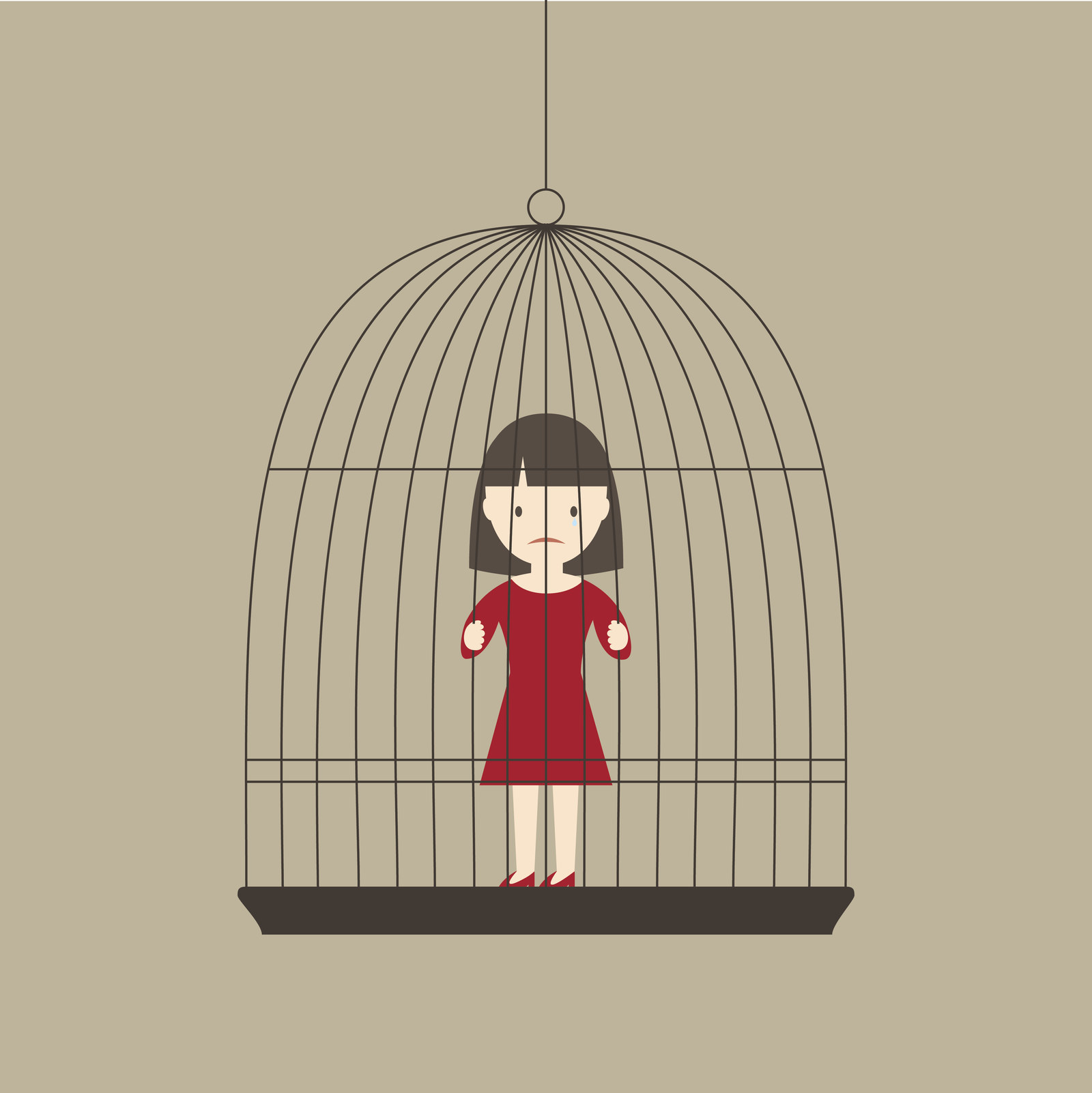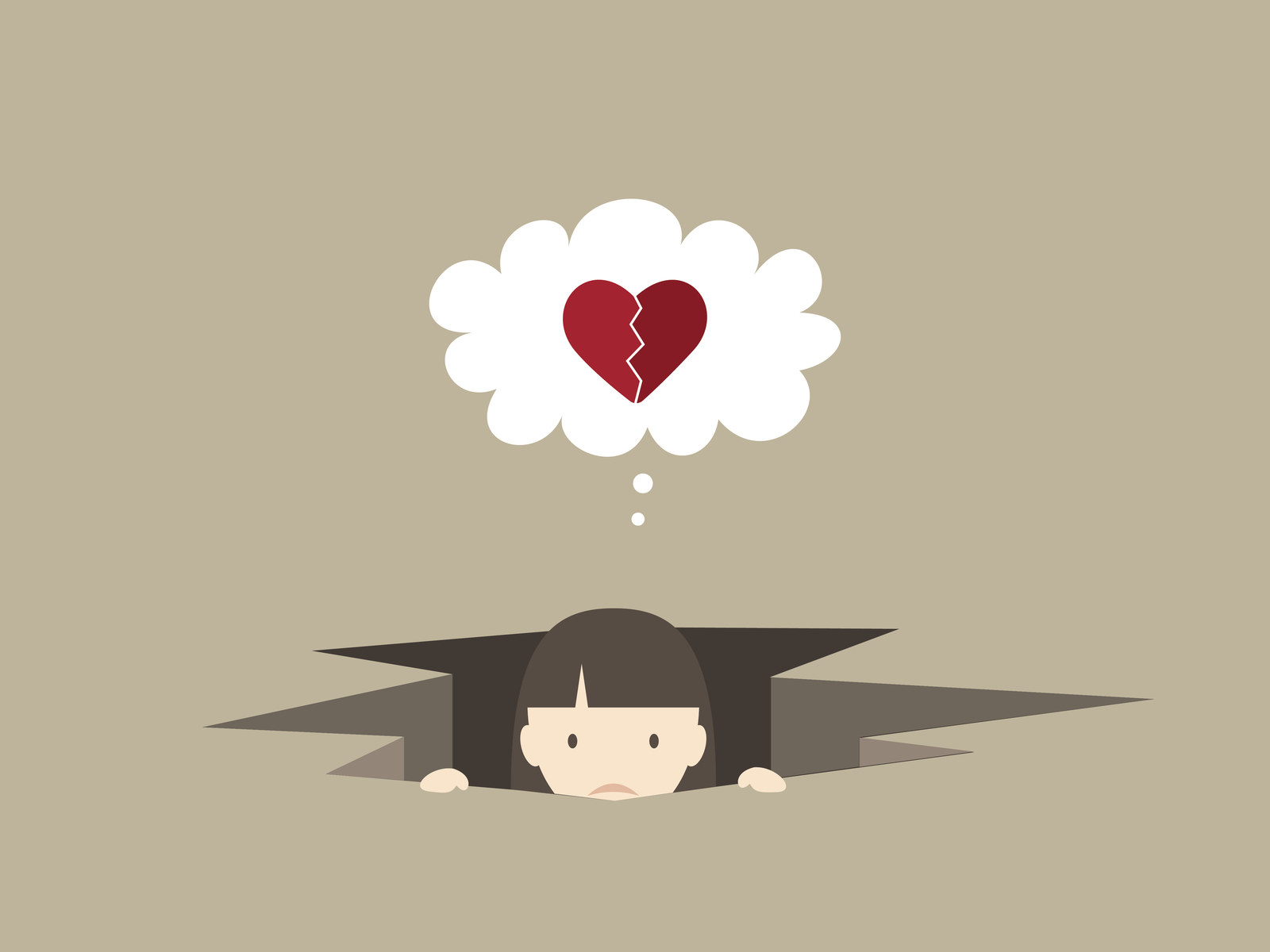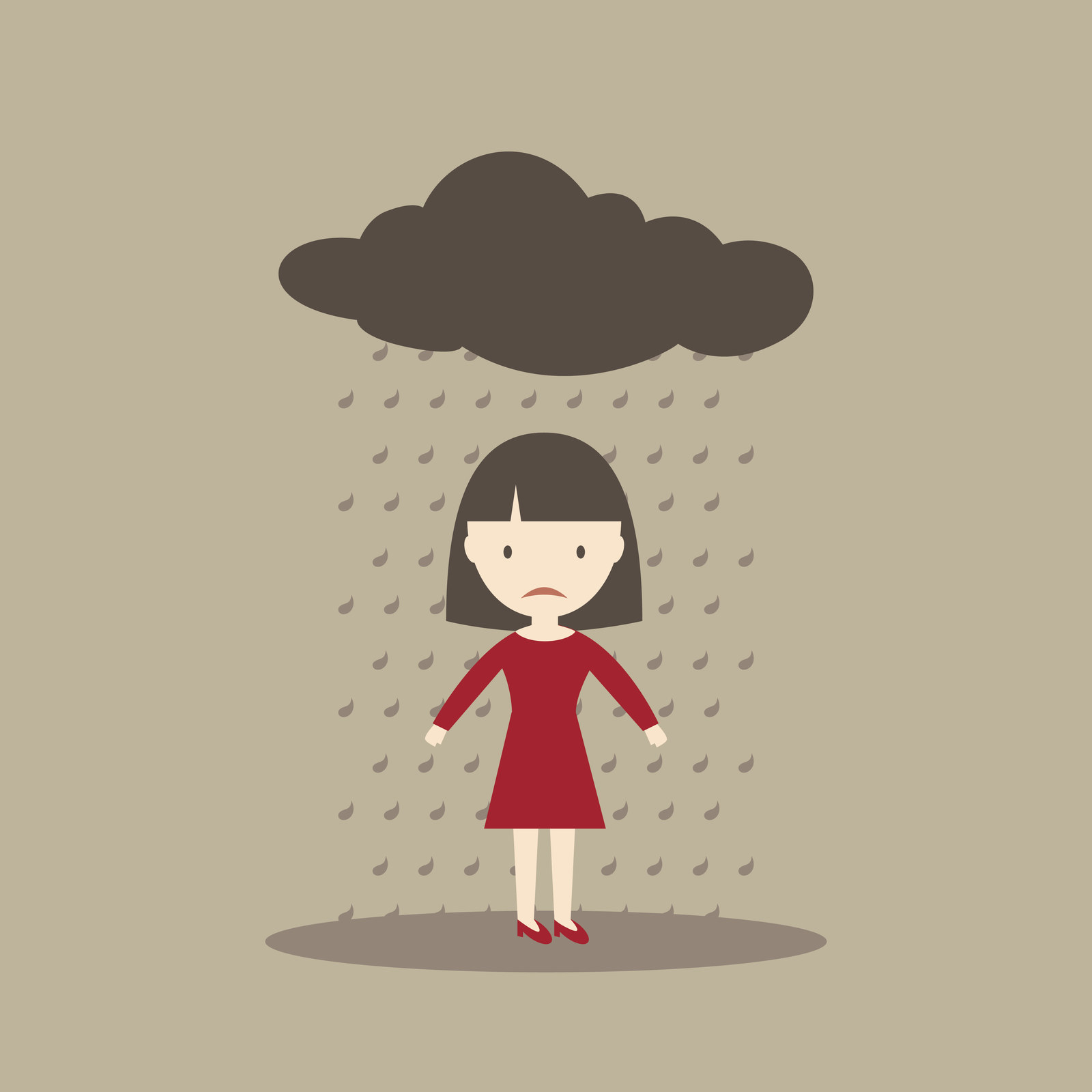
1. During normal conversations they make you feel like you don't understand anything, or like you're always wrong.
It doesn't even have to be during an argument. And it can be subtle: it's not always a direct phrase, like "Wow, what a dumb thing to say," but the impression is given that you never say anything intelligent and that you are always entirely wrong, no matter what the circumstance.
When we talk about abusive relationships it's very common to think of physical violence, because it's the most visible kind. But it's not the only kind. In this case, we're talking about emotional abuse. "The main factor in emotional abuse is the minimization and humiliation of the partner," explains Marina Ganzarolli, who is a lawyer, PhD candidate in Legal Sociology at the University of São Paulo, Brazil, and co-founder of the Feminist Jurist Network (DeFEMde). They may have never laid a hand on you, but they're always making you feel like trash.
2. When you don't agree with them, you hear things like "you're crazy," that "this is all in your head," or that you're making a big deal out of nothing.
This is called gaslighting, and it's a kind of emotional abuse in which your partner makes you start to question your own perception of reality.
3. They think they have the right to control your life and your choices.
They may want you to change your style of clothing. Or to take off your red lipstick. Or they tell you they don't like that you have other male (or female) friends. Or they even try to control where you "can" and "cannot" go. Have you ever heard something like "no partner of mine does/wears/says" this or that?
Jealousy, possessiveness, and controlling behaviors are all classic signs of a partner that could lead you into a violent relationship, explains Judge Cristina Cabral, from the Coordinating Bureau of Women in Situations of Domestic and Family Violence, of the State of São Paulo Judiciary.
This can also extend to financial abuse: they control your bills, your clothing choices, they dole out the money you can spend, etc.

4. You do things against your will for fear of how they might react if you object. Or they don't respect your wishes when you say "no," even during sex.
You don't feel like having sex, but they insist. Or you "end up giving in" because you want to please them. "Sexual assault also happens in relationships," says Ganzarolli. "He makes you feel guilty or obligated to satisfy him. And actual rape can happen, such as forced anal sex during sex, for example."
5. They "never hit you," but you often have bruises they caused, or they use physical force "to calm you down."
Physical abuse isn't just a slap or a shove. It also includes pinching, or "holding you tight" when you're arguing, leaving the marks of their fingers on your arms, or holding you by force in a hug when you don't want to be near them, for example.
6. They tell you that no one will ever love you, accept you, or want you besides them.
These are typical assertions in the realm of psychological violence, explains Ganzarolli. Phrases like, "If you do this it means you don't love me" and "If you don't do that I'm leaving" also fit in this category.

7. They don't react well to your achievements and the good things that happen in your life.
It's no coincidence that the very same day you're supposed to go out together to celebrate something good that's happened to you, you have a nasty argument over some tiny little thing and they try to convince you that you're not good enough at anything, and make you question your self worth.
8. They don't like when you talk to other people, especially when they're not there, or they try to make you believe that the only opinion you should listen to is their own.
And this isolation only furthers your withdrawal from family or friends who could help you get out of the abusive relationship.
9. They make you feel like you are to blame for their aggression or threats.
This is one of the biggest lies of the abusive relationship. Remember that you are never to blame for their actions. Never. You are not "asking for it." You did not "make them crazy." They are responsible for their own actions, not you. Never blame yourself.

10. Their actions make you feel weird, or question whether what happened was normal.
Don't doubt your own feelings, and find an opportunity to talk to someone you trust, like a friend you know will listen without judging you. We don't always realize what is happening, and talking can help you to better understand the situation. "When a woman tries to describe and talk about her situation, she realizes that it is not normal or natural," says Ganzarolli.
11. They say that other people shouldn't interfere in a fight between a couple, and that your problems are "a couple's thing."
"If we look at it in a statistical way, you see that this is not a domestic problem, or one just involving individuals, but rather one of public health and education. Everything that this woman is going through, her neighbor is going through, the woman down the street is going through, and the woman in the next district is going through," says Ganzarolli. (That said, anyone can be a victim of abuse, regardless of gender identity.)
12. They don't harm you, but they express their aggressiveness by slamming on tables, doors, and other objects.
This is in fact a form of a threat, to demonstrate their strength and suggest that you could be next.

13. They yell at you.
Remember: violence isn't just physical. And it's very common that the violence escalates. What starts out with just yelling can very quickly become a slap in the future.
14. They hit you.
It may seem obvious, but it's always good to remember: no, this is not okay, it's not right, you do not deserve it, and — again — this is not your fault.
15. They are constantly being aggressive or violent, but each time they promise they won't do it anymore.
Ganzarolli explains that in the cycle of violence, soon after the explosion happens (the fight, aggression, or violence), comes the period known as "the honeymoon."
This is when they show that they're repentant, they know they've been shitty, promise that they'll change, they'll go to therapy; they give you presents, say how much they love you, appreciate you, hear you, and they transform from a toad into a prince. That's when the victim gives up on reporting the abuser.
"The [individual] doesn't want to get rid of [their] partner, [they] want to get rid of the violence," Ganzarolli says. During this period, it seems like everything will be all right. "But though it may take hours, days, a month, a year, the cycle of violence always comes back around."
If you are in an abusive relationship, or know someone else who is in an abusive relationship, get help.
You can talk to someone you trust, or get in touch with someone at the National Domestic Violence Hotline via their live chat option or at 1-800-799-SAFE (7233), which is available 24/7.
And, of course, it's worth remembering that it's not only men who can be violent in relationships and it's not always women who are the victims.
This post was translated from Portuguese.

